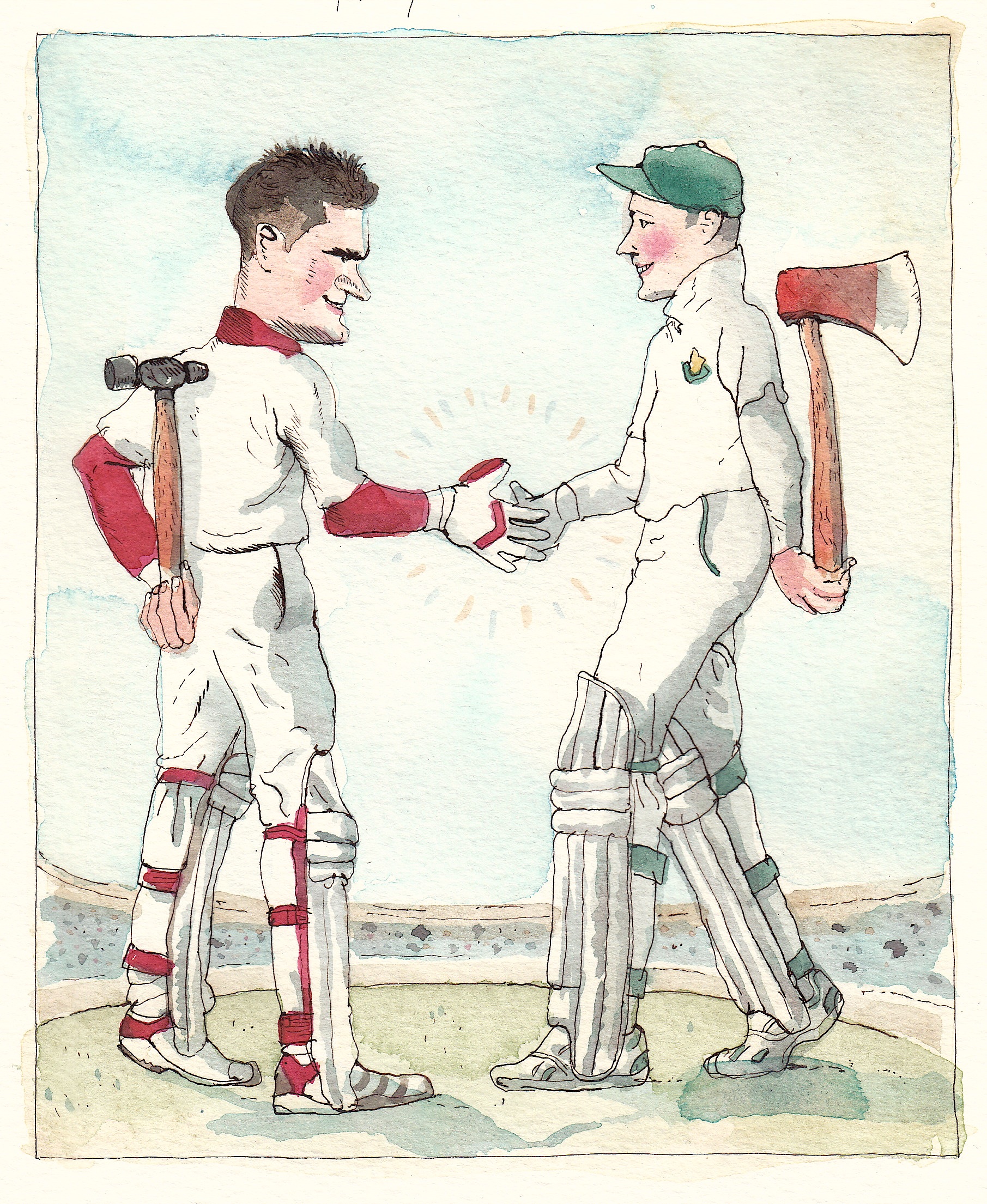Previous Article
Next Article
- AM WORLD
- FEATURES
- 100 YEARS OF ASTON MARTIN
- ARCHIVE
The Big Question
A GOOD SPORT
Is there still a place for sportsmanship in the modern, professional era?
Words Tim de Lisle | Illustration Barry Blitt

A lot of things have been squeezed out of top-level sport in the past generation or so. Goalkeepers wearing green. Referees wearing black, and being treated with respect. Stars managing without agents. Footballers getting off the team bus without headphones clamped to their heads. Kids being told they can’t have the new replica shirt. Cricketers batting in a cap. Sportspeople of any stripe wearing kit that isn’t advertising anything. Bureaucrats allowing the fans to have a reasonably priced drink. Managers of losing sides saying: “The better team won.” Anybody at all saying: “It’s not the winning that counts, it’s the taking part.”
Has sportsmanship gone too? It often feels like it. There are superstars who play with a snarl on their face. There are crowds that think a stadium is the place to vent their worst instincts—tribal, feral, absurdly one-eyed. And then there’s the filthy lucre. Money doesn’t talk, it shouts, as Bob Dylan said, and sport often forgets that it is better placed than most walks of life to tell money to shut up. But there is still another side to the story. If an opponent goes down injured, many footballers will still kick the ball out so that they can receive help. When they rise uncertainly to their feet, spectators from both sides will applaud them. Most cricketers will still admit to the umpires and their opponents if they haven’t taken a catch cleanly; when the England star Stuart Broad stood his ground after being blatantly caught against Australia, he was widely lambasted by fellow players past and present, fans and the media.
In men’s tennis, currently ruled by four giants who could easily be at each other’s throats, gentlemanliness has actually made a comeback. Roger Federer and Rafael Nadal’s long rivalry has been conspicuously friendly. When Andy Murray became the first home winner of the men’s singles at Wimbledon for 77 years in July, Novak Djokovic was impeccably gracious in defeat. Indeed, Latvian journeyman Ernests Gulbis felt compelled to describe the quartet as “boring” in some jibes delivered via the pages of the French sporting daily L’Equipe earlier in the summer.
Sportsmanship is certainly up against it. The days have gone when a leading football team, the Corinthians, was so disapproving of penalties that, when given one, they would deliberately miss it. (If today’s England players tried to miss a penalty, they would probably score.) But sportspeople still have their codes of behaviour. A footballer who fouls an opponent will often help his victim up again, and not just to avoid a booking. A fast bowler who accidentally endangers a batsman by delivering a “beamer” will always apologise, even if they had been hurling expletives at each other a minute earlier. Tennis players will wave a hand sheepishly if they get a streaky net-cord. A boxer won’t strike below the belt.
Sportsmanship may be an endangered species, but it’s not extinct, not just yet anyway. There is honour among thieves, and there is still, some of the time, decency among sportsmen.
Tim de Lisle is editor of Intelligent Life magazine and former editor of Wisden Cricketers’ Almanack
Previous Article
Next Article
- AM WORLD
- FEATURES
- 100 YEARS OF ASTON MARTIN
- ARCHIVE
